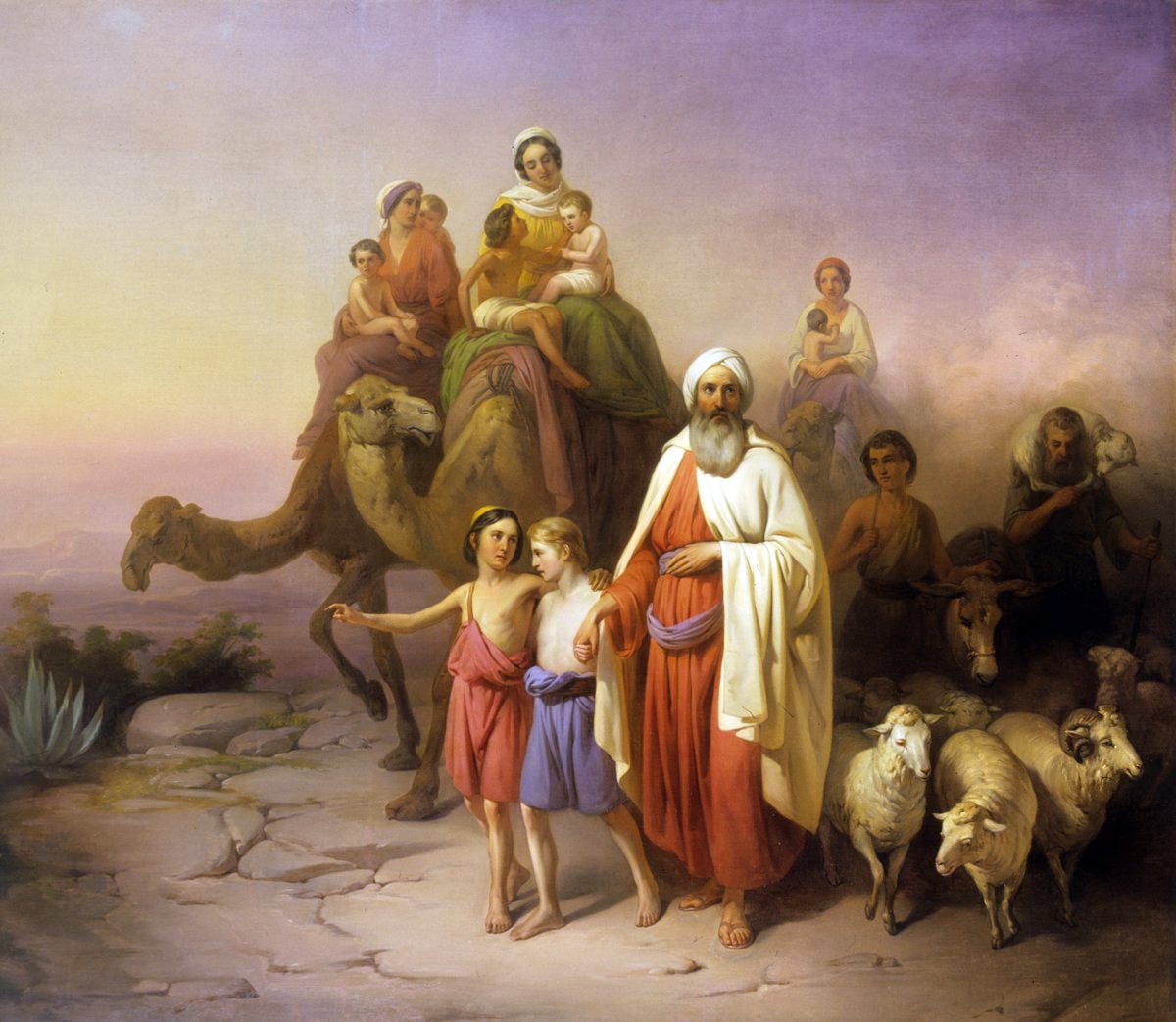The conservative paradigm, part 1
Reflections on Chapter 3, Parts 1-5, of Hazony's Conservatism: A Rediscovery
In his famous book Structure of Scientific Revolutions, Thomas Kuhn explains how learned scientists can miss clear evidence for what later becomes a scientific breakthrough: paradigm blindness. They can’t see the evidence right before their eyes because their training in one scientific paradigm blinds them to data that contradicts it. They have “eyes to see, but see not,” one might say (Ezek. 12:2).
In Chapter 3 of Conservatism: A Rediscovery, titled “The Conservative Paradigm,” Hazony argues something like this has happened in political theory. “The liberal paradigm is blind to the nation,” he says (p.91). While the liberal paradigm is attuned to—“sees,” so to speak—concepts like the individual, freedom, equality, and consent, it overlooks other important concepts, like family, loyalty, honor, and hierarchy. For Hazony, these concepts are even more fundamental to personhood, community, and national identity.
Chapter 3 is Hazony’s effort to elaborate these concepts, to make a “conservative political framework” an “alternative way of thinking about political life” (p.101).
Hazony begins with a discussion of honor and mutual loyalty. I think of these concepts as being like mass and gravity. Honor is mass. It is the “weightiness” that certain people hold or should hold in our minds and lives: parents and grandparents, pastors and rabbis, civil magistrates, kings and presidents. Loyalty is gravity. It’s the force that acts between these objects of honor, binding us to one another in families, congregations, communities, and nations. Hazony calls mutual loyalty “the most powerful force operative in the political realm” (p.114).
The forces of loyalty, acting upon objects of honor, are given shape by social hierarchy and traditional institutions—concepts that will occupy us next month for “part 2” of this chapter. For now, a comment on Hazony’s discussion of the love and loyalty that originate in family (pp.111-118). Hazony ends this discussion by observing that, while love and loyalty begin in families, they don’t end there. They extend outwardly from the family to other close collectives: clan and tribe, local political and religious communities, the nation, “and thence to all the families of the earth” (p.118, emphasis mine). Hazony’s use of this phrase is a deliberate echo of Genesis 12, where God promises to bless Abraham, to give him a family, and to make him “a great nation” so that “in you all the families of the earth shall be blessed.”
This gets to something fundamental about Hazony’s argument for a conservative paradigm: it is unapologetically biblical. Consider this in light of how God unfolds salvation history in the Bible. In Genesis, the man Abraham becomes a family. In Exodus to Deuteronomy, we learn how that family becomes a people and then a nation, bound to one another not only by a shared history and lineage, but also by a divine covenant and a set of laws, rituals, and institutions that guide their community life together. Post-Deuteronomy, we watch as that nation becomes a state—with a land, a king, a military to defend its borders, and other essential features of political life. Importantly, one thing this nation-state never becomes is an empire—a political form that the Bible repeatedly deprecates.
There’s another point to be made about Hazony’s echo of Genesis 12. An old interpretive tradition notes that the original word for “blessed” in verse 3 is a horticultural term. The verse thus also has the sense: “in you all the families of the earth shall be grafted.” Of course, Christians will immediately think of St. Paul’s metaphor in Romans 11:
[If] you, although a wild olive shoot, were grafted in among the others and now share in the nourishing root of the olive tree, do not be arrogant toward the branches. If you are, remember it is not you who support the root, but the root that supports you.
But set aside theology for a moment. Genesis 12 seems to be making a more general, even political point: blessing follows those who are joined in—grafted into—the God-Abraham project. That project began with one family, but its blessings are meant for all families, for the whole earth.
Maybe Jefferson was right that “Life, Liberty and the pursuit of Happiness” are rights universally endowed by a “Creator.” But if so, they have their root—their genesis, if you will—in God, in the familial blessings He bestows, and in a particular way of life He invites us to join ourselves to. As we study Hazony’s elaboration of a conservative paradigm, be attentive to how it is animated by the Bible’s vision for family, community, and national life.


